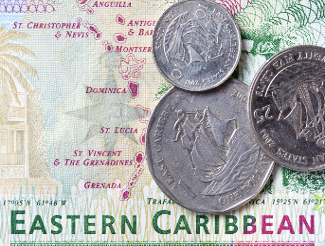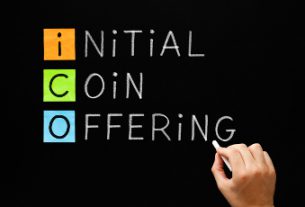While numerous countries have discussed the possibility of issuing their own digital currency, the actual issuance of central bank digital currencies has in most cases failed to materialize. Aside from Venezuela’s much-derided petro, which doesn’t seem to be gaining much traction, no other central bank has issued its own digital currency. Until now.
While many larger central banks have highlighted problems with direct central bank issuance of digital currency, particularly as they relate to the well-developed Western consumer banking system, smaller central banks have been much more receptive. And now the Eastern Caribbean Central Bank (ECCB) looks set to become the first central bank to issue its own digital currency.
The ECCB, the central bank for the Eastern Caribbean Currency Union, is the issuing authority of the Eastern Caribbean dollar, the circulating legal tender currency in Antigua and Barbuda, Dominica, Grenada, Saint Kitts and Nevis, Saint Lucia, Saint Vincent and the Grenadines, Anguilla, and Montserrat. The Eastern Caribbean dollar is pegged to the US dollar at a rate of EC$2.70 to one US dollar. Thus the new Eastern Caribbean digital currency, while backed by blockchain, will likely be more of a stablecoin than a full-fledged cryptocurrency like Bitcoin.
The development of the Eastern Caribbean digital currency will allow peer-to-peer transfers of value across the far-flung members of the Eastern Caribbean Currency Union, enabling trade and monetary transfers with essentially no cost. That’s one aspect of the new currency that its developers have particularly highlighted.
With a total population of just over 600,000 people within the Eastern Caribbean Currency Union, the Eastern Caribbean digital currency won’t see widespread adoption, but its acceptance and use could provide a further test case for the viability and practicality of digital currency usage. The Eastern Caribbean digital currency won’t be a worldwide competitor with Bitcoin but it will further demonstrate the feasibility of digital currencies for everyday use, which will benefit Bitcoin.
One thing is for certain, though, the Eastern Caribbean dollar as a stablecoin definitely won’t be an investment object like Bitcoin is. Bitcoin as an asset will continue to gain in value in the future as it becomes more popular both with consumers and investors. And as the Eastern Caribbean digital experiment will likely demonstrate the usefulness of digital currencies in everyday life, it should help Bitcoin to gain even more widespread adoption in the countries in which it is already growing popular.
This article was originally posted on Coin IRA.





